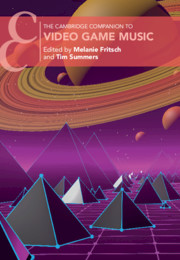Book contents
- The Cambridge Companion to Video Game Music
- Cambridge Companions to Music
- The Cambridge Companion to Video Game Music
- Copyright page
- Contents
- Figures
- Tables
- Musical Examples
- Contributors
- Preface
- A Landmark Timeline of Video Game Music
- Foreword: The Collaborative Art of Game Music
- Introduction
- Part I Chiptunes
- Part II Creating and Programming Game Music
- Part III Analytical Approaches to Video Game Music
- Part IV Realities, Perception and Psychology
- Part V Game Music, Contexts and Identities
- 18 Game Music and Identity
- 19 Game Music and History
- 20 Open Worlds: Globalization, Localization and Video Game Music
- 21 Female Credit: Excavating Recognition for the Capcom Sound Team
- Part VI Beyond the Game
- 24 Producing Game Music Concerts
- Select Bibliography
- Index
18 - Game Music and Identity
from Part V - Game Music, Contexts and Identities
Published online by Cambridge University Press: 15 April 2021
- The Cambridge Companion to Video Game Music
- Cambridge Companions to Music
- The Cambridge Companion to Video Game Music
- Copyright page
- Contents
- Figures
- Tables
- Musical Examples
- Contributors
- Preface
- A Landmark Timeline of Video Game Music
- Foreword: The Collaborative Art of Game Music
- Introduction
- Part I Chiptunes
- Part II Creating and Programming Game Music
- Part III Analytical Approaches to Video Game Music
- Part IV Realities, Perception and Psychology
- Part V Game Music, Contexts and Identities
- 18 Game Music and Identity
- 19 Game Music and History
- 20 Open Worlds: Globalization, Localization and Video Game Music
- 21 Female Credit: Excavating Recognition for the Capcom Sound Team
- Part VI Beyond the Game
- 24 Producing Game Music Concerts
- Select Bibliography
- Index
Summary
Terry Eagleton perfectly stated the most fundamental lesson about identity when he penned the line: ‘Nothing ever happens twice, precisely because it has happened once already.’1 In other words, a second iteration of an event is always different to a first occurrence, and changes in context, temporal or spatial, reconfigure the meanings of objects and events. When we posit sameness, even sameness to self, there’s always something we’re missing, some difference we’re failing to account for. Our failure to realize that the secondness of the later happening in Eagleton’s sequence makes it different from the first stands in nicely for all the differences we fail to consider when we experience people or things as possessing identities.
- Type
- Chapter
- Information
- The Cambridge Companion to Video Game Music , pp. 327 - 342Publisher: Cambridge University PressPrint publication year: 2021
- 1
- Cited by

